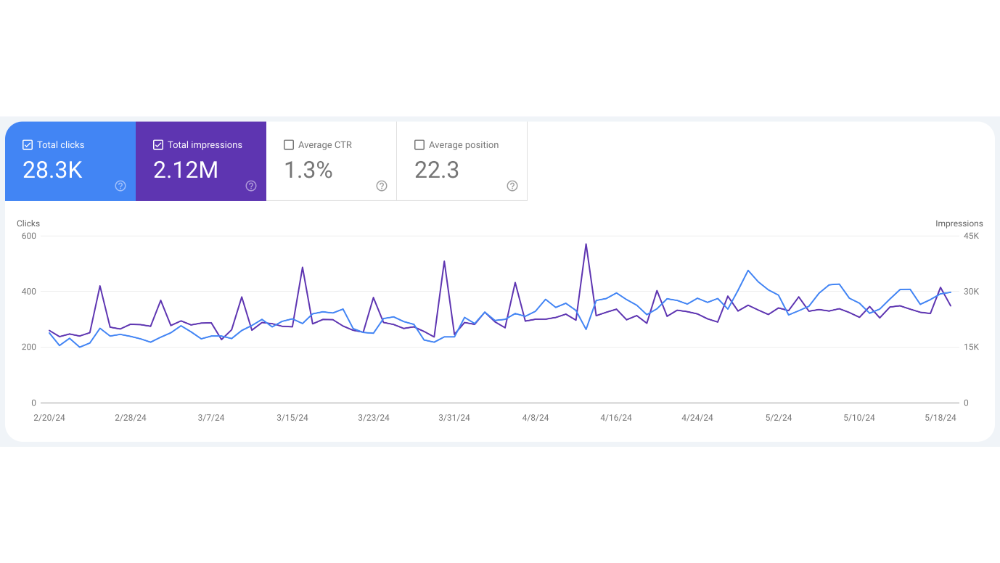A well-written law firm website can make all the difference in attracting and retaining clients. Your website is often the first point of contact for potential clients, so it’s important that your legal content marketing accurately reflects your brand and showcases your legal expertise.
In this guide, we’ll discuss the key elements to include when writing content for your law firm website. From highlighting your practice areas to showcasing your team and providing valuable resources, we’ll cover all aspects of creating a compelling online presence for your law firm.
Inform Viewers on Practice Areas

One of the main purposes of a law firm website is to inform potential clients about your practice areas. This section should be prominently displayed on the homepage and provide clear and concise information about the types of cases you handle.
It’s important to focus on your firm’s specialties and highlight any unique or niche areas of law that you specialize in. This will help attract clients who are specifically looking for a lawyer with expertise in their particular issue.
Be sure to use language that is easy for non-legal professionals to understand, avoiding jargon and technical terms whenever possible. You can also include links to recent cases or successes in each practice area to showcase your track record and build trust with potential clients.
Showcase Attorney Profiles

Another important aspect of a law firm website is the attorney profiles. This section should include information about each lawyer in your firm, including their education, experience, and areas of expertise.
You can also use this section to highlight any awards or accolades your attorneys have received, as well as any professional memberships or community involvement. This helps build credibility and trust with potential clients.
In addition to traditional biographies, you can also consider including personal statements from each attorney that showcase their personality and values. This can help humanize your firm and make potential clients feel more connected to the individuals they may be working with.
Leverage Client Testimonials

Client testimonials are a powerful tool for building trust and credibility with potential clients. These can be displayed on a separate page or scattered throughout your website, ideally in the relevant practice area pages.
When choosing which testimonials to showcase, it’s important to include a variety of clients from different backgrounds and cases. This will provide a well-rounded view of your firm’s capabilities and appeal to a diverse audience.
Provide Resources

Providing valuable resources on your website can also help attract and retain clients. This could include blog posts, articles, videos, or podcasts that offer insights and information about your practice areas.
In addition to showcasing your expertise, these resources can also improve your website’s search engine optimization (SEO) by using relevant keywords and generating backlinks from other reputable websites.
You can also consider offering downloadable resources such as e-books or guides that potential clients can access in exchange for their contact information. This can help you build a database of leads for future marketing efforts.
Include Contact Information
Last but certainly not least, your law firm website should prominently display your contact information. This includes phone numbers, email addresses, and physical addresses for each location.
In addition to including this information on a dedicated contact page, it should also be visible on every page of your website. This makes it easy for potential clients to get in touch with you no matter where they are on your site.
You can also consider including a contact form or live chat option for added convenience and accessibility.
Write a Blog

Maintaining a blog on your law firm website is an excellent way to share your legal knowledge and keep your clients informed about recent developments in the law. Regularly posting articles that discuss changes in legislation, landmark case outcomes, or offering legal advice on common issues can position your firm as a thought leader in your practice areas. Not only does this demonstrate your expertise and commitment to staying updated, but it also provides valuable law firm content for your audience that can drive more traffic to your website.
Ensure your blog posts are well-researched, informative, and written in a way that is easy to understand for non-legal professionals. Including images, infographics, and relevant links can make your posts more engaging and useful. Consistent blogging can also improve your website’s SEO by incorporating relevant keywords and generating new content that attracts search engines.
Adding Frequently Asked Questions (FAQ)

Adding a Frequently Asked Questions (FAQ) section to your law firm website can significantly enhance user experience by addressing common queries and concerns upfront. This section should cover a broad range of questions related to your practice areas, legal processes, and client expectations, providing clear and concise answers.
An effective FAQ section not only helps potential clients find answers quickly but also reduces the time your staff spends answering routine questions. This can include information on how to schedule a consultation, what documents to bring, an overview of your firm’s fee structure, and steps involved in pursuing a legal case. By preemptively addressing common concerns, you build trust and demonstrate your firm’s commitment to transparency and client education.
Several Factors That Can Affect SEO Optimization

Keyword Research and Usage
Effective SEO begins with thorough keyword research. This involves finding the words or phrases that potential clients are likely to use when searching for legal services. Once identified, these keywords should be strategically placed throughout your website’s content, including headings, subheadings, meta descriptions, and within the body text. However, it is crucial to use keywords naturally and contextually, avoiding the temptation to “keyword-stuff” which can lead to penalties from search engines.
Tools such as Google Keyword Planner and SEMrush can assist in discovering relevant keywords and understanding their search volume, competition, and trends. Consistently updating your keyword strategy based on performance data and changing search behaviours is equally important in maintaining effective SEO.
High-Quality Content
Search engines prioritize websites that provide high-quality, relevant content. This means that your website should offer valuable information that addresses the needs and concerns of your audience. Regularly updating your site with fresh content, such as blog posts, articles, and case studies, can help maintain and improve your search engine ranking.
This content should be well-researched, informative, and written in a way that is accessible to non-legal professionals. Engaging formats like videos, infographics, and interactive elements can also enhance the quality of your content and keep visitors on your site for longer periods, signalling to search engines that your content is valuable and engaging.
Mobile-Friendliness

With more users accessing the internet via mobile devices than ever before, having a mobile-friendly website is crucial for SEO optimization. Search engines, particularly Google, use mobile-first indexing, which means they predominantly use the mobile version of content for indexing and ranking. A responsive design that adjusts seamlessly to different screen sizes ensures that your website delivers a good user experience on smartphones and tablets.
This not only improves user engagement but also boosts your site’s search engine rankings. Regular testing across various devices and browsers will help you identify and resolve any issues that could affect the mobile experience.
Site Speed
The speed at which your website loads can have a significant impact on your search engine ranking. Search engines like Google consider page speed as a ranking factor because it directly affects user experience. Slow-loading websites can lead to higher bounce rates, as visitors are likely to leave a site that takes too long to load.
To improve your site’s speed, you can compress large images, enable browser caching, and minimize the use of heavy scripts. Tools like Google’s PageSpeed Insights can provide valuable insights into your site’s performance and offer recommendations for improvement.
Backlinks
Backlinks, or inbound links from other reputable websites to your own, are a critical factor in SEO optimization. They serve as endorsements of your content, signalling to search engines that your site is credible and authoritative. Acquiring high-quality backlinks can be achieved through various strategies such as guest blogging, creating shareable content, and building relationships with industry influencers and publications.
It’s important to focus on quality over quantity, as links from reputable sites have a more significant impact than numerous low-quality links. Regularly monitoring your backlink profile using tools like Ahrefs or Moz can help you identify valuable links and spot any potentially harmful ones that could negatively affect your SEO.
User Engagement Metrics
Search engines evaluate user engagement metrics such as bounce rate, time on site, and pages per session to determine the relevance and quality of your website. A high bounce rate or low time on site can indicate that visitors are not finding the content useful, which can negatively impact your SEO rankings.
To improve user engagement, ensure that your site is easy to navigate, with a clear structure and intuitive design. Interactive elements, compelling calls to action, and engaging content can help keep visitors on your site for longer and encourage them to explore multiple pages. Analytics tools can provide insights into user behaviour, helping you identify areas for improvement and track the effectiveness of your strategies.
Local SEO
For law firms, local SEO is particularly important as it helps attract clients from your specific geographic area. This involves optimizing your website and online presence to appear in local search results, which can include setting up a Google My Business profile, incorporating location-based keywords, and ensuring that your firm’s name, address, and phone number (NAP) are consistent across all online platforms.
Local backlinks, reviews, and citations from local directories also play a crucial role in improving your local SEO. By focusing on local SEO, you can enhance your visibility to potential clients in your area who are actively seeking legal services.
Technical SEO
Technical SEO encompasses the backend elements of your website that can affect its performance and how well search engines can crawl and index it. This includes optimizing your site’s architecture, ensuring a clean and logical URL structure, using proper header tags, and creating an XML sitemap. It also involves fixing any issues such as broken links, duplicate content, or 404 errors that can hinder search engines from properly indexing your site.
Implementing structured data with schema markup can further enhance your site’s visibility by providing search engines with detailed information about your content. Regular audits of your site’s technical aspects can help identify and resolve any issues that could impact your SEO performance.
Content Writing By Kova

Kova stands out as a content writing agency that specializes in SEO content to create effective law firm websites with helpful information. With our team of experienced writers who understand the intricacies of legal content writing and the unique needs of legal clients, Kova crafts content that not only educates but also engages.
Our deep understanding of SEO ensures that every piece of content is optimized for search engines, helping law firms improve their visibility and attract more clients. From meticulously researched blog posts and informative articles to dynamic case studies and engaging video scripts, Kova ensures that your website remains a valuable resource for your audience, leading to better user engagement and higher search engine rankings.
Partnering with Kova means you are investing in a legal content writer that drives results. We are committed to delivering tailored, high-quality content that aligns with your firm’s goals and target audience. Don’t let your website get lost in the digital crowd; elevate your online presence with Kova’s exceptional SEO content writing services.
Ready to take your law firm’s website to the next level? Contact Kova today to learn how we can help you stay ahead of the competition!
Frequently Asked Law Firm Website Content Writing Questions

How Can I Measure the Effectiveness of My SEO Campaign?
Measuring the effectiveness of your SEO campaign involves tracking a variety of key performance indicators (KPIs) that reflect both search engine visibility and user engagement. One crucial metric is organic traffic, which indicates the number of visitors coming to your site through non-paid search results. Tools like Google Analytics can provide detailed insights into organic traffic trends over time. Another important KPI is keyword ranking, which tracks your position on search engine results pages (SERPs) for target keywords. Tools such as SEMrush and Ahrefs can help monitor your rankings and identify opportunities for improvement.
Additionally, evaluating the bounce rate offer insights into the relevance and quality of your content. A high bounce rate can mean that visitors are not finding what they expect. Time on site and pages per session are also valuable metrics to gauge user engagement. Conversion rates, whether it’s form submissions, newsletter sign-ups, or online consultations, directly measure the ultimate goal of your SEO campaign: turning visitors into potential clients.
What Are the Best Practices for Creating High-Quality Backlinks?
Creating high-quality backlinks involves several strategies focused on earning links from reputable and relevant websites. One effective approach is guest blogging, where you contribute articles to industry-specific blogs and include backlinks to your site. This not only builds backlinks but also enhances your reputation as an authority in your field. Developing shareable content, such as infographics, research reports, and expert roundups, increases the likelihood that other sites will link to your content.
Building relationships with influencers and industry leaders can also lead to high-quality backlinks. Engage with them on social media, comment on their blog posts, and share their content while citing them in your articles. Additionally, you can leverage broken link-building techniques. This involves finding broken links on other websites, creating content that matches the intended link, and requesting the webmasters to replace the broken links with your live ones. Participating in online forums and Q&A sites such as Quora, where you can provide valuable insights and link back to your content, can also help in gaining quality backlinks.
How Can My Law Firm Optimize for Voice Search?
Optimizing for voice search is becoming increasingly important as more users rely on voice-activated devices like smartphones, smart speakers, and virtual assistants. To start, focus on natural language and conversational keywords since voice searches are typically longer and more complex than text searches. Try to incorporate questions and phrases that mimic how people naturally speak and ask questions.
Ensure your website is mobile-friendly and has fast loading times, as many voice searches are conducted on mobile devices. Claim and optimize your Google My Business profile to enhance your chances of appearing in local voice searches. Structuring your content to answer common questions concisely can also improve your chances of being featured in voice search results. Implementing structured data with schema markup provides search engines with clear information about your content, which can enhance your visibility in voice search results.
Why Is Local SEO Crucial for Law Firms?
Local SEO is crucial for law firms as it helps attract clients from your specific geographic area, which is often essential for service-based businesses. Optimizing for local SEO involves several key steps. First, setting up a comprehensive Google My Business profile ensures that your firm appears in local search results and Google Maps. Make sure to include accurate and updated information, such as your firm’s name, address, phone number, hours of operation, and services.
Incorporating local keywords into your website content marketing, metadata, and blog posts can help improve your ranking in local search results. For example, use phrases like “best personal injury lawyer in [city].” Gathering positive reviews on platforms such as Google, Yelp, and local directories can also enhance your local SEO, as reviews are a significant trust signal for search engines and prospective clients. Additionally, earning local backlinks from reputable local publications, community organizations, and business directories can further boost your local visibility and credibility.
Conclusion
In today’s digital age, having a well-optimized website is indispensable for law firms aiming to increase their online presence and attract potential clients. By implementing effective SEO strategies, creating high-quality backlinks, optimizing for voice search, and focusing on local SEO, your firm can stay ahead of the competition and achieve sustained growth. SEO is not a one-time effort but an ongoing process that requires adaptation to the latest trends and updates.
Ready to elevate your law firm’s digital footprint? Partner with Kova today to leverage our expert SEO services and ensure your website achieves its full potential. Contact us now to get started on your journey to dominating the search engine results pages!

